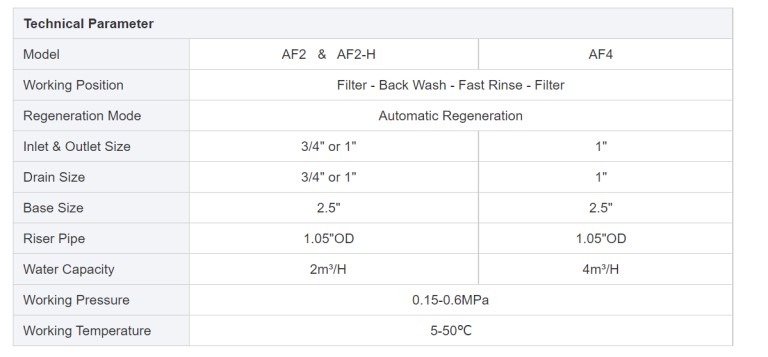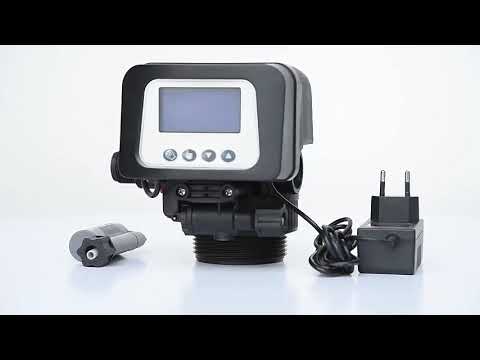“Say goodbye to sediment with a water softener.”
Table of Contents
Benefits of Using a Water Softener to Remove Sediment
Water softeners are a popular solution for homeowners looking to improve the quality of their water. One common issue that many people face is sediment buildup in their water supply. Sediment can come from a variety of sources, including minerals in the water, dirt and debris in the pipes, and even corrosion of plumbing fixtures. This sediment can not only affect the taste and appearance of your water but can also lead to clogged pipes and appliances.
One of the main benefits of using a water softener is that it can help to remove sediment from your water supply. Water softeners work by using a process called ion exchange to remove minerals such as calcium and magnesium from the water. These minerals are the main culprits when it comes to sediment buildup in your pipes and appliances. By removing these minerals, a water softener can help to prevent sediment from forming in the first place.
In addition to preventing sediment buildup, using a water softener can also help to improve the overall quality of your water. Hard water, which is water that contains high levels of minerals, can leave behind a residue on your dishes, clothes, and skin. This residue can be difficult to remove and can make your water feel less clean. By using a water softener to remove these minerals, you can enjoy cleaner, clearer water that is free from sediment and other impurities.
Another benefit of using a water softener to remove sediment is that it can help to extend the life of your plumbing fixtures and appliances. Sediment buildup can cause clogs in your pipes and can also damage your appliances, such as your dishwasher and washing machine. By using a water softener to prevent sediment from forming, you can help to protect your plumbing and appliances from damage, saving you money on costly repairs in the long run.
Using a water softener to remove sediment can also help to improve the efficiency of your water heater. Sediment buildup in your water heater can reduce its efficiency, causing it to work harder and use more energy to heat your water. By using a water softener to prevent sediment from forming, you can help to keep your water heater running smoothly and efficiently, saving you money on your energy bills.
How to Choose the Right Water Softener for Removing Sediment
Water softeners are a popular solution for improving the quality of water in homes and businesses. They work by removing minerals such as calcium and magnesium that cause hard water, which can lead to a variety of issues including scale buildup in pipes and appliances. However, many people wonder if water softeners are effective at removing sediment from their water as well.
Sediment in water can come from a variety of sources, including dirt, sand, and rust. It can cause water to appear cloudy or discolored, and can also clog pipes and damage appliances. While water softeners are not specifically designed to remove sediment, they can help to reduce it to some extent.
When water passes through a water softener, the resin beads inside the tank attract and remove minerals that cause hardness. In the process, some sediment may also be trapped and removed. However, water softeners are not as effective at removing larger particles of sediment, such as sand or rust.
If sediment is a major concern for you, there are other options to consider. One option is a sediment filter, which is designed specifically to remove particles of sediment from water. These filters can be installed at the point of entry to your home or at individual faucets, depending on your needs.
| Model | Central tube | Drain | Brine tank connector | Base | Power supply parameters | Maximum power | Pressure parameters | Operating temperature |
| 5600 | 0.8125″/1.050″ O.D. | 1/2″NPTF | 1600-3/8″ | 2-1/2″-8NPSM | 24v,110v,220v-50Hz,60Hz | 3W | 2.1MPa | 1℃-43℃ |
| 0.14-0.84MPa | ||||||||
| 5600SXT | 0.8125″/1.050″ O.D. | 1/2″NPTF | 1600-3/8″ | 2-1/2″-8NPSM | 24v,110v,220v-50Hz,60Hz | 8.4W | 2.1MPa | 1℃-43℃ |
| 0.14-0.84MPa | ||||||||
| 2510 | 1.05″ (1″)O.D. | 1/2″O.D. | 1600-3/8″ | 2-1/2″-8NPSM | 24v,110v,220v-50Hz,60Hz | 72W | 2.1MPa | 1℃-43℃ |
| 1650-3/8″ | 0.14-0.84MPa | |||||||
| 2700 | 1.05″ O.D. | 3/4″NPTF | 3/8″ & 1/2″ | 2-1/2″-8NPSM | 24V,110V,220V-50Hz,60Hz | 74W | 2.1MPa | 1℃-43℃ |
| 0.14-0.84MPa | ||||||||
| 2850 | 1.9″(1.5″)O.D. | 1″NPTM | 3/8″&1/2″ | 4″-8UN | 24v,110v,220v-50Hz,60Hz | 72W | 2.1MPa | 1℃-43℃ |
| 0.14-0.84MPa | ||||||||
| 2900 | 1.9″(1.5″)O.D. | 3/4″NPTM | 3/8″&1/2″ | 4″-8UN | 24v,110v,220v-50Hz,60Hz | 143W | 2.1MPa | 1℃-43℃ |
| 0.14-0.84MPa | ||||||||
| 3150 | 2.375″(2″) O.D. | 2″NPTF | 1″NPTM | 4″-8UN | 24v,110v,220v-50Hz,60Hz | 87W | 2.1MPa | 1℃-43℃ |
| 0.14-0.84MPa | ||||||||
| 3900 | 3.5″(3″) O.D. | 2″NPTF | 1″NPTM | 6″-8UN | 24v,110v,220v-50Hz,60Hz | 171W | 2.1MPa | 1℃-43℃ |
| 0.14-0.84MPa | ||||||||
| 9000 | 1.05″ O.D. | 1/2″NPT | 1600-3/8″ | 2-1/2″-8NPSM | 24v,110v,220v-50Hz,60Hz | 8.9W | 2.1MPa | 1℃-43℃ |
| 0.14-0.84MPa | ||||||||
| 9100 | 1.05″ O.D. | 1/2″NPT | 1600-3/8″ | 2-1/2″-8NPSM | 24v,110v,220v-50Hz,60Hz | 8.9W | 2.1MPa | 1℃-43℃ |
| 0.14-0.84MPa | ||||||||
| 9500 | 1.9″(1.5″) O.D. | 1″NPTF | 3/8″& 1/2″ | 4″-8UN | 24v,110v,220v-50Hz,60Hz | 8.9W | 2.1MPa | 1℃-43℃ |
| 0.14-0.84MPa |
Another option is a whole house water filtration system, which can remove a variety of contaminants from water including sediment, chlorine, and other impurities. These systems typically consist of multiple filters that work together to provide clean, filtered water throughout your home.
When choosing a water softener for removing sediment, it’s important to consider the size of your household and your water usage. A larger household with higher water usage will require a larger water softener to effectively remove sediment and other contaminants from water.

It’s also important to consider the type of sediment present in your water. If you have a lot of sand or rust in your water, a sediment filter may be a better option than a water softener. However, if you primarily have issues with hardness minerals, a water softener may be sufficient to improve the quality of your water.
In conclusion, while water softeners are not specifically designed to remove sediment, they can help to reduce it to some extent. If sediment is a major concern for you, consider using a sediment filter or whole house water filtration system in addition to a water softener. By choosing the right combination of water treatment options, you can ensure that your water is clean, clear, and free of sediment.






